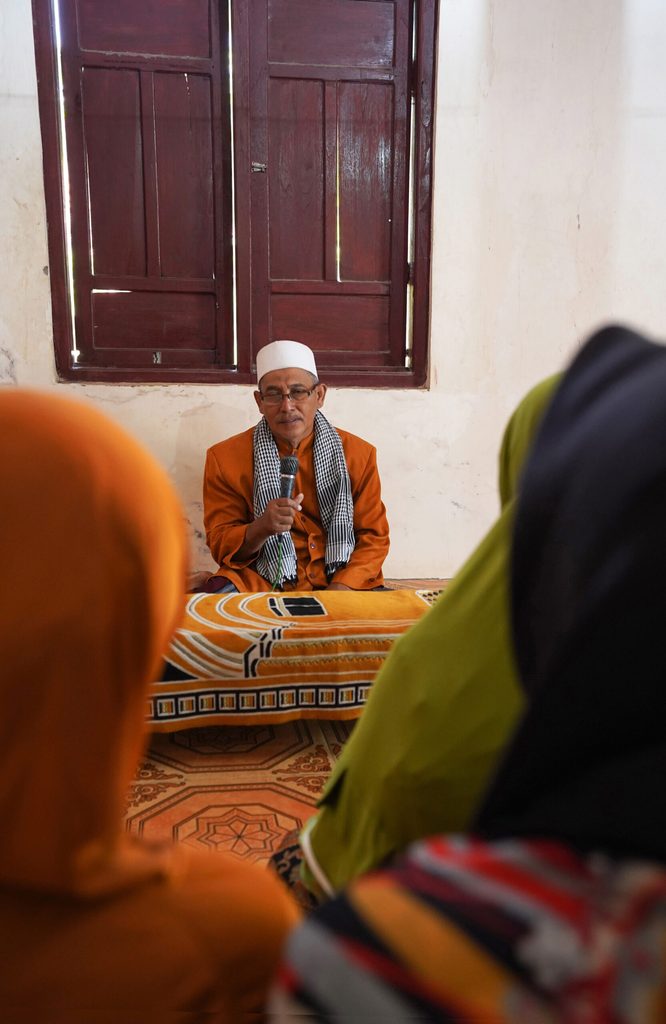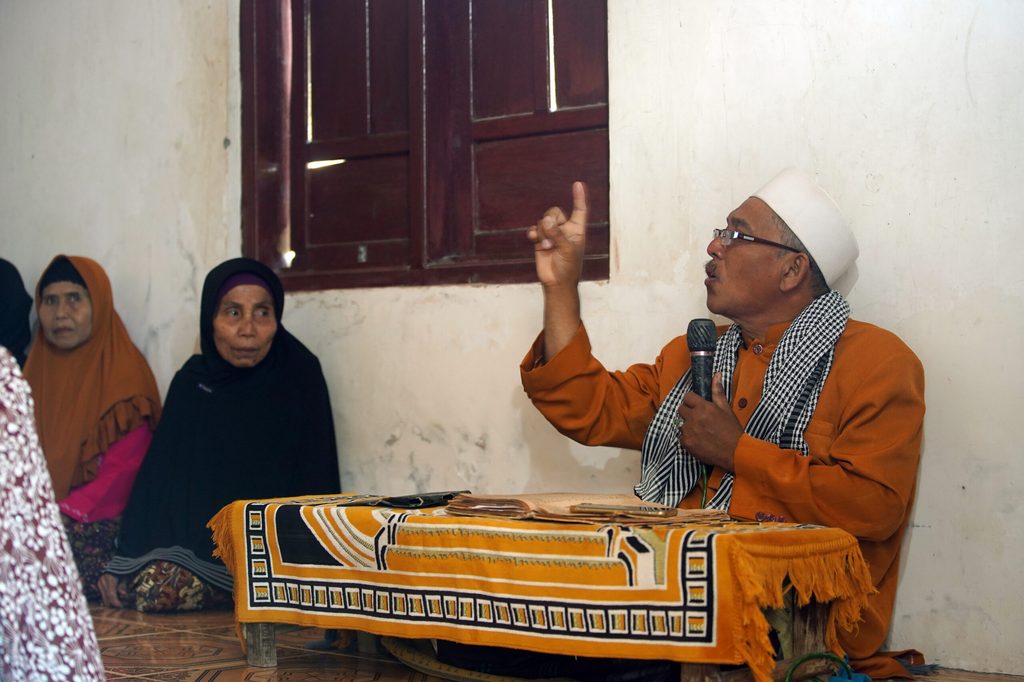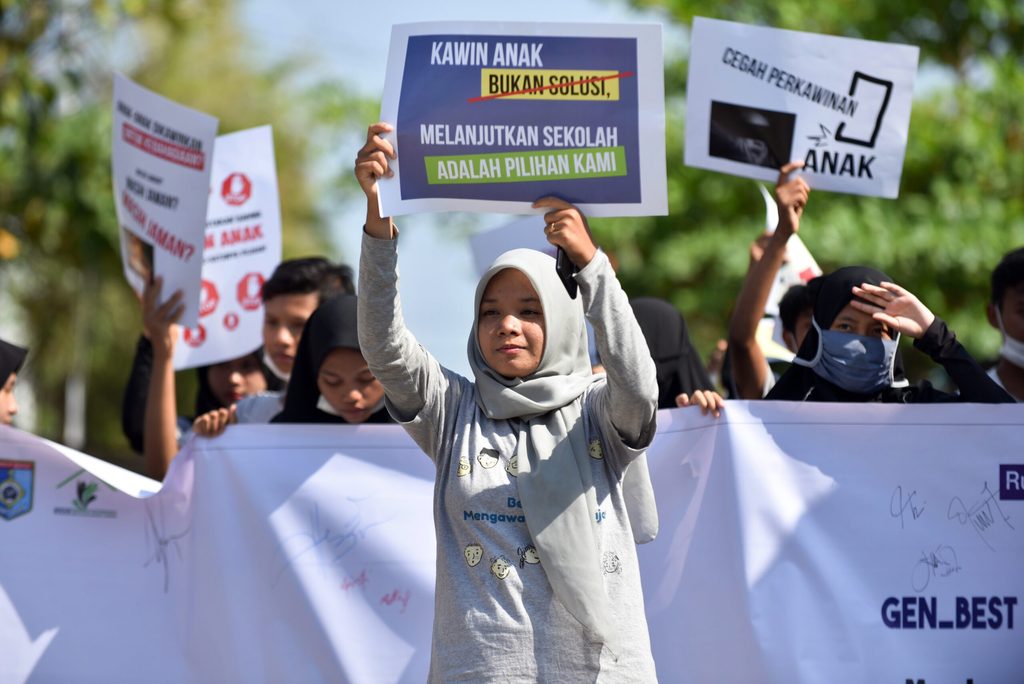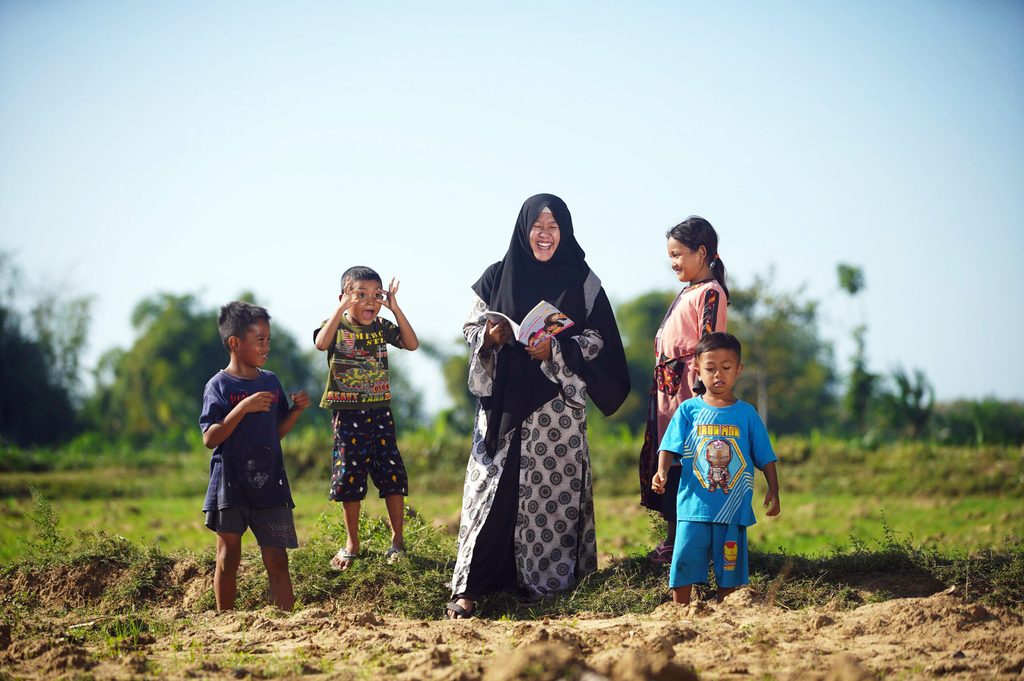The Messenger Matters: Indonesia’s Religious Leaders and Girls Preventing Child Marriage
Within many mosques across Indonesia, local religious leaders are taking the lead in the fight against child marriage, using their influence to inspire positive change among the fathers, young men, and boys.

Since the launch of Yayasan Plan International Indonesia’s Yes I Do project, it is a cause supported by an increasing number of mullahs, Sunni Muslim mosque leaders, who have lately grown alarmed by the psychological and health toll child marriage takes on girls. In a country with among the highest number of child marriages in the world, it is essential that advocates against child marriage are using their positions to influence change among the men who may contribute to it. Traditional sources of authority are more effective at promoting campaigns, and messages from religious leaders – considered the gatekeepers of traditions – have been found to be particularly effective.
The Wise Messenger
Take Haji Nur Rohmat, a religious leader in rural Indonesia, who is using poetry as part of a campaign to end this harmful practice. The work of Haji Nur is part of Yayasan Plan International Indonesia’s community engagement effort. He is not alone in his efforts to prevent and stop child marriage. Lately, dozens of other religious leaders have been advocating against it.
“Children are a gift from God, so their physical and mental integrity should be respected as best as possible,” said Haji Nur.
This mullah feels so strongly about this topic, that sometimes he feels compelled to issue regulations. But more often this religious figure tries to shape decisions by his congregation using easily understandable poetry, proverbs, and figures of speech. His chief goal is to convey major ideas that may break with tradition without confusing his listeners.

In Indonesia, poverty is among the key factors which perpetuate child, early, and forced marriage. Girls from poor families, particularly those living in rural areas or with low levels of education, are especially vulnerable. However, child marriage is also prevalent in areas with relatively high levels of income, indicating that societal and cultural attitudes and norms also play a significant role in perpetuating the practice.
In the last decade, Indonesia has taken steps to reduce and eliminate child marriages, including raising the minimum age of marriage for women to 19-years-old, making child marriage prevention a national priority, and launching national awareness-raising campaigns. However, progress remains slow – the practice has decreased by just 3.5 percent in the last ten years. If the country is to achieve the SDGs and eliminate this harmful practice once and for all, much more needs to be done.
Establishing Community Based Child Protection Mechanisms within local communities and making them functional is another central component of the Yes I Do project. The key to this has been securing support from parents and community gatekeepers, such as holding community discussions. Through such efforts Yayasan Plan International Indonesia has helped establish 12 Child Protection Mechanisms, run and led by a network of local change agents – including girls and young women – who facilitate community discussions, respond to cases, and assist victims.

The Young Messenger
At 19, Suci is the youngest female community-based child protection mechanism leader in her area. She has witnessed the devastating impacts that child marriage has had on her community. Before joining she had no notion of the power her voice and actions could have. Now she is an essential driver of change in her village. She advocates for child protection regulation at the village level, which includes efforts that have established a “community declaration against child marriage” with support from the village government.
“As the young leader of the child protection mechanism in my village, I see the great potential of youth engagement and active participation in this community group. Nowadays, girls and boys could decide by themselves to get married, without parents forcing them to.”
Such efforts are leading to positive results. So far, 175 cases of violence against children have been reported to the child protection mechanism, of which 111 were cases of child marriage. In 22 of these cases, the marriages were canceled. These figures indicate the potential of the community groups to prevent and stop child marriage.
The Messenger Matters
That’s what makes the creative efforts of Haji Nur, Suci and Yes I Do so important. Social change is also within the unheralded work being done within communities to change the minds of those who may consider putting a girl in a perilous position. Many religious young activists and other influential leaders within the community can be the catalyst for this positive change. Yes I Do has spawned hundreds of social change efforts indicating that Indonesian society is becoming more progressive in addressing child marriage.
“My major ideas are to remind parents they have an obligation to protect the rights of children. The abuse and forced marriage of children constitutes a violation,” said Haji Nur. “My congregation thinks deeply about progress, so the way I communicate is welcome because I try to give a sufficient understanding of the advantages and disadvantages of anything that may seem contentious.”

Yes I Do
The Yes I Do project operated across three locations in Indonesia. A strong emphasis was placed on sexual and reproductive health and rights and the project aimed to equip adolescent girls and boys with the knowledge and information to make informed decisions about their bodies, lives, and futures. Another feature of the project was strong community engagement, including the creation of Community Based Child Protection Mechanisms, as well as efforts to influence governments at the district and national level.
Categories: Campaigns, Protection from violence, Sexual and reproductive health and rights, Youth empowerment


